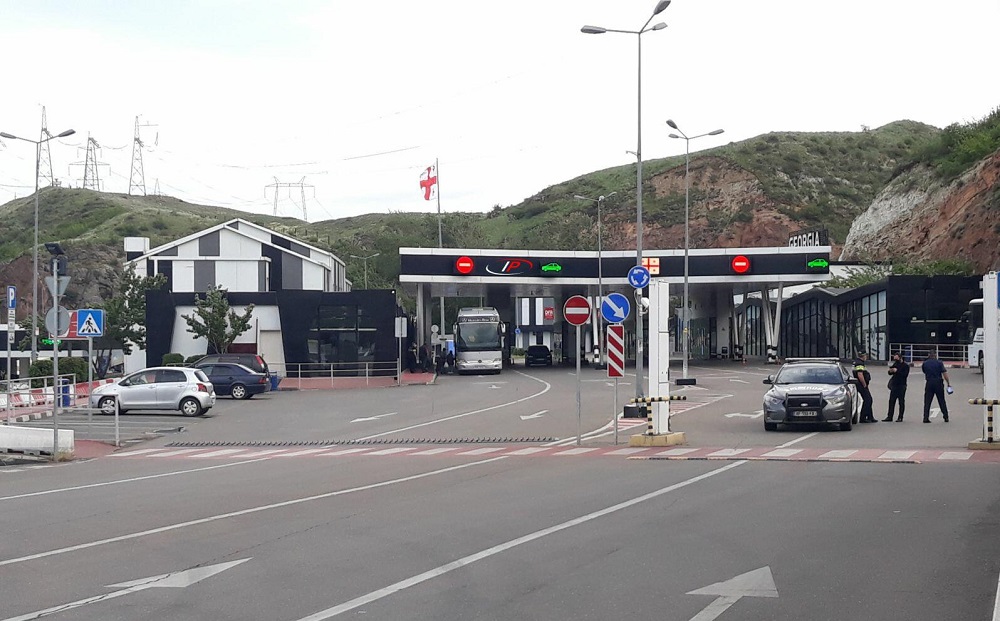What impact do Azerbaijan's closed land borders have on the lives of ordinary people?
Azerbaijan’s land borders have been closed
Azerbaijan‘s land borders have been closed for nearly five years. This decision was made as part of a special quarantine regime introduced after the first case of coronavirus was detected in March 2020. Since then, the special quarantine period has been repeatedly extended. According to the latest decision from the Cabinet of Ministers, announced in September this year, the special quarantine regime in Azerbaijan will remain in effect at least until January of next year. President Ilham Aliyev has recently emphasized that while the closure of land borders was initially related to the special quarantine regime, it is now more about security.
- Participants in the “Georgian Dream” election campaign are attempting to pressure voters – ISFED
- Increase in serious crimes in Armenia, but also more cases solved: five-year statistics
- Azerbaijan may transition to hourly wages
“I can say with full confidence that closing our land borders has saved us from many major disasters in recent years. Even today, with the borders closed, dangerous actions are being taken, and those actions are being prevented,” the head of state said at the first meeting of the Milli Majlis, which began its work in the framework of the VII convocation. However, it is unclear what disaster is being referred to and what the threat that prompted the closure of the land borders is.
How does the closure of land borders affect the lives of ordinary people? JAMnews presents several stories.
“Due to the closure of land borders, travel costs have increased nearly tenfold.”

Elmadin Shamilzadeh is a student studying for his master’s degree at the Georgian Institute of Public Affairs (GIPA) in Tbilisi.
“I arrived in Georgia in August 2023. I had to leave the country on the same day I was accepted into the master’s program. So, for an emergency one-way flight ticket, I paid 390 manats (approximately $230). But if the land borders had been open and I could have taken the train, I would have spent at most 40-50 manats (about $23-29). I could have also traveled by car or bus, which would have been even cheaper. In other words, the closure of the land borders has increased my expenses almost tenfold,” says Elmadin.
According to him, he hasn’t been able to return to Azerbaijan since he started his studies. However, when family members want to visit him, they have to pay a lot of money.
“When my father came, I bought his ticket 10 days before the flight and paid 480 manats (about $282) for a round trip. If you buy tickets in advance, it is relatively cheaper. But if you need to travel urgently, you end up spending half of your student scholarship on a ticket. Airfare prices are very high because many Azerbaijanis travel from Georgia to Azerbaijan. Prices keep rising every year, almost as if taking advantage of the current situation. They know people have to fly at any cost; there is no other option.”
“I was unemployed for several months and didn’t know what to do.”
Farida (name changed) suffers from thalassemia and is a second-group disabled person. The 42-year-old woman earned a living by selling perfumes and dishes that she purchased and brought from Iran until the land borders closed. The closure changed her life entirely. She says she had to go hungry for months because she couldn’t find work.
“I used to go to Iran once or twice a month and trade from there. I earned quite well. As soon as the borders were announced to be closed, my dark days began. Not only I, but everyone around me who earned a living this way suffered. I had no close relative or family member who could help me. If it weren’t for the food aid from neighbors and benefactors, I would have probably starved,” says the woman.
After being unemployed for about a year, Farida began working as a dishwasher in a teahouse. She earns less money doing much harder work. “I come to work early in the morning around 8 or 9 and return home after 11 at night. There are days when the waiter comes to work late, and I have to work in his place too. I get so tired that sometimes I don’t even have the strength to speak. Earning 10 manats (about $6) a day is an insult for a person.” When Farida was finally able to travel to Iran, she received treatment there.
“In Azerbaijan, I buy medicine for 20 manats (about $12), while in Iran I could get it for 5 manats (about $3). I also didn’t have money for a doctor. How can I get treated earning 10 manats a day? Believe me, sometimes I have to borrow money because I can’t find enough for my medications. Then the time comes to repay the loan, and I have no money left for medicine,” says Farida.
“Cross-border trade is at a standstill.”

According to economist Natig Jafarli, the closure of land borders negatively affects the economy of the country in various directions.
“Firstly, cross-border trade no longer exists. Previously, cross-border trade created certain opportunities for small and medium-sized businesses; people living in border areas had the chance to earn a living. This had a positive impact on the livelihoods of the population in these regions. Secondly, it has a very negative impact on the tourism sector. Georgia, with its open land borders, receives 7 million tourists a year, while Azerbaijan, at best, receives 1.5-1.6 million. This negatively affects tourism revenue,” says the expert.




















